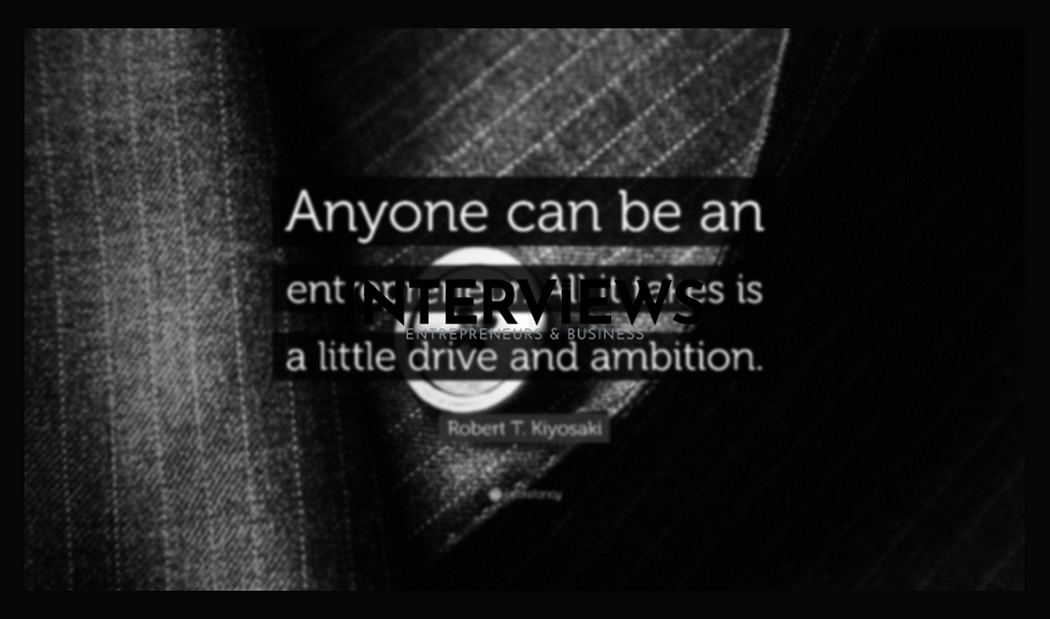Unlock Your Inner Mogul: A No-Fluff Guide to Entrepreneurial Mastery
Considering entrepreneurship? Good call. Or maybe it’s a bold leap. Either way, you’ve landed in the right spot. No one shares a playbook for this wild ride. This guide serves as your cheat sheet. It’s filled with wisdom, stripped of jargon and fluff.
Fueling Your Brain: The Entrepreneur’s Reading List
Here’s a secret weapon of winning entrepreneurs. It’s not just coffee, although that’s helpful. It’s reading. A lot of reading. Books capture decades of experience for you. Here’s a list to kick off your journey, organized for your reading pleasure:
Must-Read Books That Aren’t Just Hype
The Lean Startup by Eric Ries: Failing fast is better than risking everything on a guess.Good to Great by Jim Collins: This is the guide to turning good companies into memorable ones.Zero to One by Peter Thiel: Forget minor upgrades. Thiel encourages you to create something innovative. Expect stunning insights.Rework by Jason Fried and David Heinemeier Hansson: Reject old business ideas. This book delivers a refreshing dose of practicality for today’s entrepreneurs.The E-Myth Revisited: Why Most Small Businesses Don’t Work and What to Do About It : Focus on your business, not just in it. This helps avoid the self-employment trap.Influence: The Psychology of Persuasion : Knowing how people think is essential when selling or building a team.The 22 Immutable Laws of Marketing : Marketing is not random. These laws offer commands for market success.Breakthrough Advertising : Old-fashioned? Perhaps. Timeless principles for gaining attention? Definitely. Warning: You might need a dictionary.Simple Numbers, Straight Talk, Big Profits! : Don’t fear numbers; they pulse through your business. Learn to decipher them for clarity on your situation.How to Win Friends & Influence People : A classic. Business revolves around relationships; mastering them pays off.
Deep Dive Reads: Strategy & Big Ideas
Understanding Michael Porter by Joan Magretta: Porter’s Five Forces provide actionable insights for strategy.Crossing The Chasm by Geoffrey A. Moore: Tech entrepreneurs should use this as their manual for gaining the mainstream market.Good Strategy Bad Strategy by Richard Rumelt: Strategy means more than hopes; separate fluff from actionable plans.The Innovator’s Dilemma by Clayton Christensen: Disruption is more than a buzzword; grasp how it operates to avoid pitfalls.
Mindset Matters: Books to Train Your Brain
Mindset: The New Psychology of Success : Growth mindset vs fixed mindset. It influences stagnation versus growth.Thinking, Fast and Slow : Your brain has biases; identify them to improve decision-making.The 7 Habits of Highly Effective People by Stephen R.: This remains relevant. Solid principles improve effectiveness.The Mountain Is You: Transforming Self-Sabotage Into Self-Mastery : Your greatest hurdle is often yourself. Time to overcome that internal mountain.
Billionaire & CEO Book Picks (Because Why Not?)
Curious what fuels successful minds? Here’s a window into their bookshelves:
- From the Billionaire Bookshelf:
The Intelligent Investor ,How to Win Friends and Influence People ,Common Stocks and Uncommon Profits ,Rework ,Influence: The Psychology of Persuasion . - CEO Reading Habits: Check
The Wall Street Journal andThe Financial Times for trends and events. - Elon Musk’s Futuristic Reads:
Life 3.0 ,Human Compatible ,Our Final Invention ,Superintelligence ,What We Owe the Future ,Zero to One ,Merchants of Doubt . Prepare for deep thoughts. - Bill Gates’ Eclectic Mix:
Sapiens: A Brief History of Humankind ,Guns, Germs, and Steel: The Fates of Human Societies ,Outliers: The Story of Success ,Factfulness: Ten Reasons We’re Wrong About the World ,The Hunger Games ,The Catcher in the Rye . Even billionaires enjoy fiction alongside reality checks.
The Grind & Hustle Section (For the Energetic Soul)
Crush It!: Why Now Is the Time to Cash In on Your Passion by Gary Vaynerchuk: This high-energy book motivates you to monetize your passion.The $100 Startup: Reinvent the Way You Make a Living, Do What You Love, and Create a New Future by Chris Guillebeau: Proof that you don’t need wealth to start a business.Virtual Freedom by Chris Ducker: Master delegation via virtual assistants and reclaim your time.Work Smarter by Nick Loper: Efficiency hacks help you achieve more in less time.48-Hour Start-up by Fraser Doherty: Launch a business over the weekend? Yes, it’s ambitious but feasible.
Classics & Foundational Reads (The OG Entrepreneurial Texts)
The Fountainhead by Ayn Rand: Rand prompts debate and inspires ambition in pursuit of one’s vision.The Effective Executive by Peter Drucker: Timeless management wisdom. A must for any leader.Business Adventures by John Brooks: Buffett’s favorite tales of corporate drama and market craziness.Benjamin Franklin by Walter Isaacson: Franklin was not just a founding father; he was an innovator and entrepreneur.Think and Grow Rich by Napoleon Hill: Rules of wealth focus on mindset and positive thinking.Conscious Capitalism by John Mackey and Raj Sisodia:Total harmony between profit and purpose is possible.Rich Dad Poor Dad by Robert T. Kiyosaki:This book covers habits of the wealthy versus the habits that trap others.
Reading Habits of the Elite (Spoiler: They Read A Lot)
- CEO Book Count: CEOs read about 60 books annually —that’s about five monthly.
- Millionaire Reading Ritual:Savvy millionaires reportedly consume one book each week.
The Power of the Page: Why Reading Matters
“What I know for sure is that reading opens you up,” says Oprah, “It exposes you and gives you access to anything your mind can hold.” Reading broadens perspective and sparks innovation.
This concept resonates with many. Reading expands your thoughts and generates ideas. Plus:
- Brain Boost: More reading builds more neural connections. It acts as mental exercise, possibly improving IQ over time.
The Entrepreneurial DNA: Mindset and Key Traits
Beyond books, what else differentiates entrepreneurs? Their mindset and traits transform dreams into achievements. Let’s break down crucial aspects of an entrepreneurial mindset:
The ‘C’ Suite of Entrepreneurship
No corner offices; concentrate on these ‘C’s:
- The 5 C’s of Entrepreneurial Triumph:
- Clarity:Your vision and goals must be clear. Vague goals yield vague results.
- Cash Flow:Your business’s lifeblood is mastering cash flow—money in and out.
- Culture:Your company must have a personality. Foster a culture that draws in talent and promotes new ideas.
- Customer Delight:Satisfied customers return (and serve as great marketing). Strive to exceed their expectations.
- Communication:A clear message is vital for internal and external stakeholders.
-
- Innovation: Ask “why?” and “what if?”
- Commitment: Entrepreneurship is a marathon. Grit and dedication fuel success.
- Creativity: Solve problems with flair. Think without boxes.
- Confidence: Believe in yourself, but stay realistic. Overconfidence can mislead.
- Another Set of 4 C’s (For Breakthroughs):
- Commitment: As before. Always important.
- Courage: Take risks, confront fears, and push limits. No guts, no glory.
- Capability: Gather knowledge and skills. Always learn and improve.
- Confidence: Still essential. Ground it in humility.
The ‘P’ Factors of Entrepreneurial Mastery
Add some ‘P’ower to your entrepreneurial toolkit:
- The 5 P’s for a Winning Approach:
- Persistence: When things get hard, keep going. Resilience is vital.
- Patience: Rome took time, as do successful businesses. Vision is essential.
- Purpose: What drives you? A strong purpose fuels passion.
- People: Build your team and network. Business relies on collaboration.
- Profits: A business must be profitable. Sustainable profits ensure survival.
Top 10 Skills Every Entrepreneur Needs (Like, Yesterday)
- Critical and Creative Thinking: Analyze, generate, and think quickly.
- Strategic Thinking and Planning: Understand the big picture. Anticipate difficulties.
- Branding, Marketing, and Networking: Build your presence and relationships.
- Entrepreneurial Skills in the Workplace: Boost your value with these skills.
- Teamwork and Leadership: Inspire and collaborate with others.
- Time Management and Organizational Skills: Manage tasks and maintain sanity amidst chaos.
- Sales Skills: Selling any product needs persuasion.
- Stress Management Skills: Find coping methods for entrepreneurship’s stress.
Top Traits of Entrepreneurs Who Actually Make It
- Determination: Stay dedicated to your objectives through challenges.
- Risk-Taking: Take calculated risks, avoiding recklessness.
- Optimism: Maintain belief in your vision while staying realistic.
- Curiosity: Seek knowledge and exploration.
- Problem-Solving: Change obstacles into opportunities. Be resourceful.
- Confidence: Have self-belief, balanced with humility.
- Adaptability To Change: Markets and technologies shift; be flexible.
- Persistence: Keep pushing through even when giving up is tempting.
Mindset Traps to Avoid (Like the Plague)
- Fear Mindset: Fear of failure can immobilize you. Combat it with action.
- Overconfidence: Arrogance leads to blindness towards risks. Stay humble.
- Perfectionism: Completing tasks matters more than perfection. It’s procrastination.
- Indecision: Hesitation costs opportunities. Be decisive.
- Procrastination: Tackle challenging tasks first; do not be inactive.
Key Questions Every Entrepreneur Should Obsess Over
Entrepreneurship requires strategic thinking. Keep these questions clear:
- What are my goals? Personal and business clarity is power.
- Do I have the right strategy? Check your plan’s soundness and adaptability.
- Can I execute the strategy? Ensure you have the needed resources and skills.
Your lightbulb moments could include:
- What irritates me? Pain points often reveal business opportunities.
- What do I want but can’t find? Solve your needs. Many share them.
Navigating the Business Battlefield: Success, Failure, and Survival
Entrepreneurship resembles a battlefield with battles won and lost. Knowing the landscape is essential.
The Failure Files: Why Small Businesses Stumble
- Top Reasons for Small Business Failure:
- Lack of Capital/Funding: Running out of cash kills businesses. Plan finances carefully.
- Inadequate Management Team: You need a team with various skills.
- Faulty Infrastructure/Business Model: Validate your model and build solid systems.
- Unsuccessful Marketing Initiatives: You must market; otherwise, you won’t exist.
Landmine Detection: Pitfalls to Dodge
- Pitfalls to Avoid:
- Ignoring Market Research: Launching blind is reckless. Study your market.
- Neglecting Financial Management: Track finances. Understand your metrics.
- Micromanaging Everything: Trust your team; micromanagement hinders growth.
- Lack of Adaptability: Be flexible. Embrace change for survival.
- Ignoring the Importance of Marketing: Build relationships and tell your story.
- Ignoring Current Customers: Loyal customers matter. Provide service and listen.
The Fear Factor: Common Entrepreneurial Anxieties
- Common Fears:
- Fear of Failure: Recognize it, learn from it. Don’t get stuck.
- Fear of Financial Instability: Manage your cash flow to tackle anxiety.
- Fear of Competition: Competition means validity. Innovate to stand out.
- Fear of Not Having Enough Time: Learn to prioritize and say “no.”
- Fear of Making Difficult Decisions: Make informed decisions quickly.
When to Call It Quits (And When to Push Through)
- Reasons for Quitting:
- Burnout and Mental Health Struggles: Prioritize health over business sometimes.
Marketing & Strategy: The 7Ps and 4Cs of Business Warfare
Your financial strategy is vital to entrepreneurship. Use these frameworks effectively:
The 7Ps of Entrepreneurship: Your Marketing Mix
- The 7Ps:
- Product: Define what you’re offering. Is it truly beneficial?
- Price: Check competitiveness and profitability. Find the right balance.
- Place: Determine where you’re selling. Utilize appropriate channels.
- Promotion: Spread awareness through marketing, advertising, and PR.
- People: Your team and customers matter greatly to your success.
- Process: Ensure smooth operations and value delivery.
- Physical Evidence: Trust comes from branding, websites, and testimonials.
The 4Cs of Strategy: Your Strategic Compass
- The 4 C’s of Strategy:
- Company: Understand strengths, weaknesses, and culture.
- Category: Know the industry landscape and trends.
- Competitors: Identify competition and differentials.
- Customers: Focus on customers’ needs and pain points for success.
The Education Edge: Is a Degree Worth It?
A degree isn’t mandatory for entrepreneurship. It can help in some cases.
- Business Degree: It offers foundational knowledge in finance, marketing, and management. Real-world experience sometimes matters more than formal education.
Your brief guide to entrepreneurship is here. Go read, embrace chaos, and create something amazing. Keep learning along the way and enjoy the journey. You can do this.





